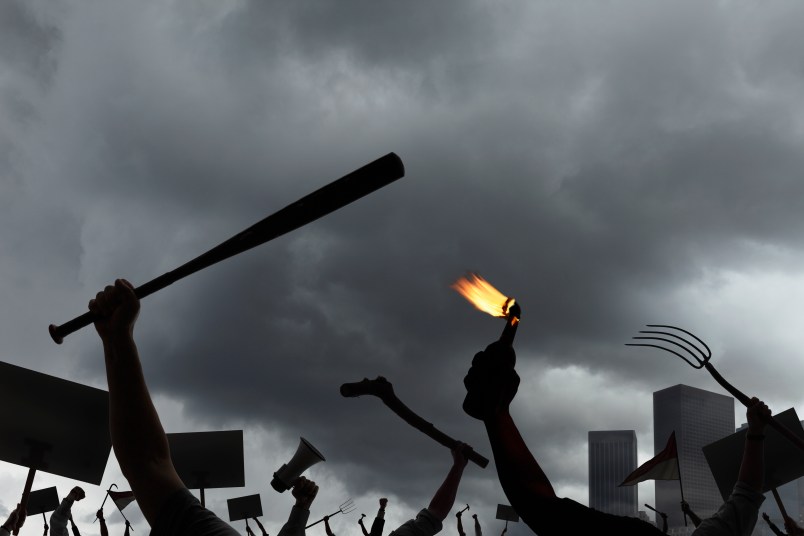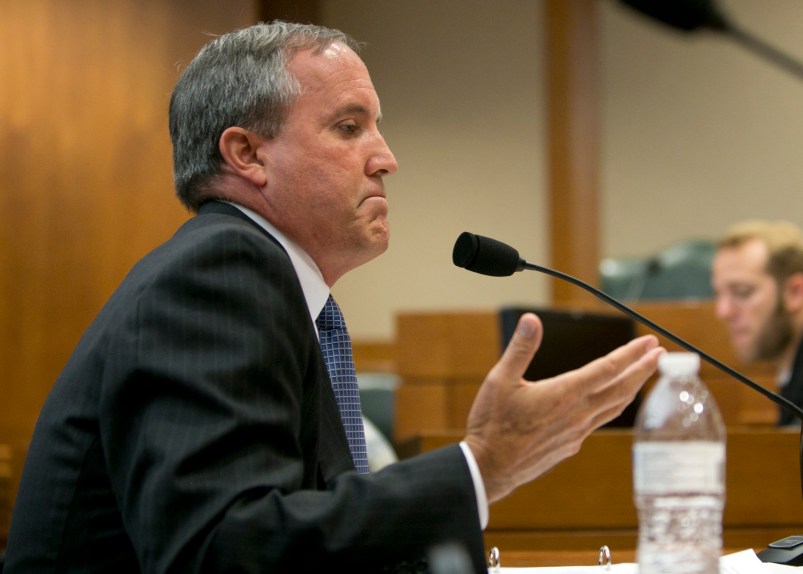As if we needed any more proof that a war is being waged on reproductive freedom in the United States, a new report from the Guttmacher Institute definitely answers yes. According to the report, more abortion restrictions were enacted from 2011-2013 than in the entire preceding decade. From 2000-2010, 189 abortion restrictions were enacted. From 2011-2013, that number jumps to 205. Two hundred five abortion restrictions in three years isn’t just a trend; it’s a crisis.
According to the report, 22 states enacted 70 abortion restrictions in 2013 alone, making it second only to 2011 in the number of new abortion restrictions passed in a single year. 2013 saw unconstitutional 20-week, 12-week, and even 6-week abortion bans, from Texas to Arkansas to North Dakota, and this report makes clear that anti-choice activists aren’t slowing down — they’re actually growing more brazen in their attacks.
The terrain continues to shift from under our feet. The Guttmacher Institute reports that in 2000, 31 percent of women of reproductive age lived in one of the 13 states hostile to abortion rights. By 2013, 56 percent of women or reproductive age live in one of the 27 states hostile to abortion rights. There is no middle ground anymore, as even purple states like Ohio and Virginia, or even more traditionally blue states like Michigan and Wisconsin, have embraced fanatic anti-abortion restrictions.
In the last three years, bans on abortions at or even before 20 weeks postfertilization have become one of the more common types of abortion restrictions passed. In these cases, lawmakers are openly and knowingly breaking federal law, flagrantly violating the fetal viability norm in Roe v. Wade (which prohibits states from restricting abortion before the fetus can survive outside of the womb) in order to force a case to the Supreme Court.
In the meantime, federal judges have declared many of these bans unconstitutional, as is the case with North Dakota’s 6 week ban, Arkansas’ 12 week ban and Arizona’s 20 week ban. While it is motivating and heart-warming to see these bans ruled unconstitutional, other restrictions pervade and render access to safe and legal abortion care elusive for many. Limitations on insurance coverage of abortion, like Michigan’s “Rape Insurance” bill have proven popular with anti-choice activists, as have restrictions on medical abortion. On top of this, there are parental involvement laws, unnecessary and paternalistic waiting periods, forced ultrasounds, bans on public funding of abortion and continual efforts to defund women’s healthcare providers like Planned Parenthood. The bench of anti-abortion legislative tactics runs deep.
Few restrictions have been as successful at eroding access to abortion care than TRAP laws (Targeted Restrictions on Abortion Providers). TRAP laws impose unnecessary requirements on abortion providers in an effort to shut them down altogether, and they have proven more difficult to overturn and are therefore more pernicious. In fact, since 2010, more than 50 abortion clinics have closed nationwide during this wave of anti-abortion restrictions, making it increasingly hard or downright impossible for women in the 27 states hostile to abortion rights to access safe and legal abortion care. Roe v. Wade is meaningless of safe and legal abortion is nowhere to be found.
Having less luck on the national level, anti-choice activists have largely moved to state-based restrictions, with incredible success. What’s more, 2013 saw the emergence of city-based abortion restrictions. In Albuquerque, anti-choice activists managed to put a 20 week abortion ban on the November ballot, which was voted down by its own citizens. In Fairfax, Virginia, the Republican legislature passed a TRAP law zoning ordinance that forced the closure of the city’s only abortion clinic. There is no level of government safe from these severe and unnecessary abortion restrictions anymore.
To a certain extent, we as a nation are unfortunately reaping what we sowed with the tea party surge of 2010, particularly on the state level. A wave of conservatives were elected to office under the guise of “small government” and “job creation,” and in turn, they have passed some of the most egregious, dangerous anti-abortion legislation in recent memory. The 205 abortion restrictions from the last three years serve as solid proof of the importance of voting, especially locally. It matters who we vote for on every level of government, but especially on the local level. As we feel we are reifying Roe by voting for pro-choice Senators and pro-choice Presidents, our State Senators and City Council members are passing increasingly draconian abortion restrictions right in our own backyards.
If the first few years of this decade are any indication of what’s to come, safe and legal abortion will be all but a pipe dream by 2020. Unless, of course, we stop it.
Lauren Rankin is a feminist writer and activist. Her work has appeared at publications such as Salon, RH Reality Check and TruthOut. Currently a graduate student in Women’s and Gender Studies at Rutgers University, she focuses on reproductive politics and the political use of sexual shame. Follow her on twitter at@laurenarankin.









